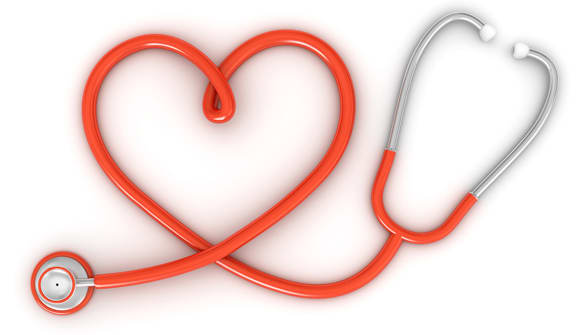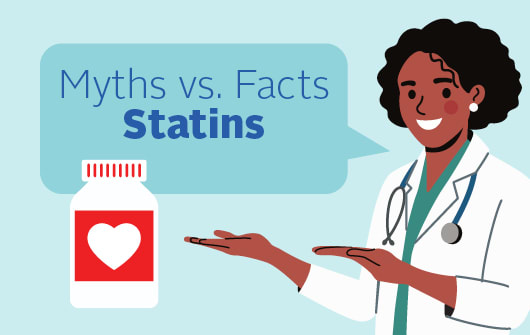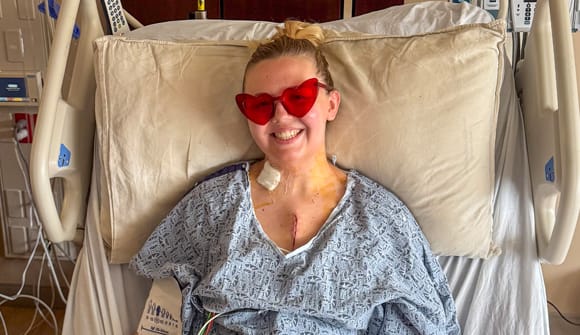You and your heart
A year-round love story.
Article Date:

Ah, February. The time of year when Cupid, love and hearts are all around for Valentine's Day. Since 1964, it's also been American Heart Month, a reminder for people to focus on their cardiovascular health. But what about the other 364 days, or 11 months, of the year?
Maintaining a healthy heart should be just like nurturing a healthy relationship; express your love every day. Chetan Hampole, MD, a cardiologist with Baptist Heart Specialists, shared the love by answering some of the most common questions he receives from patients.
I have a family history of heart disease. Should I be tested?
A history of broken hearts doesn't necessarily mean you're at risk.
"The decision to be tested for heart disease is not so much based on your family history, but on whether you have risk factors such as tobacco use, diabetes, high blood pressure or high cholesterol, or if you're overweight or having symptoms. If you're thinking about being tested, have a thorough discussion with your cardiologist about all aspects of your cardiovascular health."
I have heart disease. Should I take a baby aspirin?
According to Dr. Hampole, there are a couple of conditions for which baby aspirin is appropriate:
- Atherosclerotic cardiovascular disease (ASCVD), which is a plaque buildup in any arteries, including in the brain, heart, neck, leg or the aorta (the large blood vessel that runs throughout the body).
- Diabetes.
"For everyone else, it's an analysis of the benefit versus risk," Dr. Hampole explained. "If someone has no heart disease risk factors, the benefit of aspirin is minimal and the person may develop irritation to the stomach lining, gastritis or ulcers. Talk to your doctor about what may be right for you."
As for aspirin or other pain relievers to treat a common headache? "Sparingly using common anti-inflammatory drugs such as ibuprofen as needed is OK. But if you need to use it on a regular basis, it should be discussed with your cardiologist."
What is the best diet for people with heart disease?
Making that romantic meal a healthy one is a true way to show your love.
"The Mediterranean diet is still the best choice for heart health. It's not a single diet, but one based on principles originating in the Mediterranean countries," Dr. Hampole said.
This diet puts an emphasis on:
- Omega-3 fatty acids (fish)
- Fresh produce
- Smaller, more frequent meals
- Earlier dinner, with no late snacking
- Minimal saturated fats and sugars
As always, talk with your doctor before embarking on a different diet.
What is a stress test, and do I need one?
Feeling stressed about your Valentine's Day plans? This test won't help with that, but it will give you a better idea of potential heart problems.
"Stress tests are one of the most common things we do. The noninvasive exam is designed to determine if there is any significant buildup of cholesterol in the heart arteries," said Dr. Hampole.
There are three basic tests:
- The treadmill test: Patients walk on a treadmill and heart rate is measured at various points. As the body works harder during the test, it requires more oxygen and the heart must pump more blood. The test can show if blood supply is reduced in the arteries that supply the heart.
- The nuclear test: Uses a small amount of radioactive material and an imaging machine to create pictures showing blood flow to the heart and any areas with poor flow or damage.
- The exercise echocardiogram test: Uses a transducer (similar to a microphone) to send out high-frequency sound waves, which bounce or "echo" off of the heart structures and send the signals to a computer. The computer displays the echoes as images of the heart walls and valves.
As for who needs one, "Have a thoughtful conversation with your primary care physician or cardiologist. Guidelines suggest they are not routinely ordered, but can be if there are risk factors or symptoms such as chest pain or shortness of breath, among others," said Dr. Hampole.
True love
So what's the best way to love your heart?
"Try to take advantage of the things that are in your control," said Dr. Hampole. "You don't have power over your genetics, but you determine your nutrition, exercise, stress, sleep and hydration. All of those have an immediate and long-term impact on your heart health."
Baptist Health provides the region's most comprehensive cardiovascular care.
To learn more about prevention, diagnosis and treatment for heart and vascular conditions, visit baptistjax.com/heart or call 904.720.0799.


